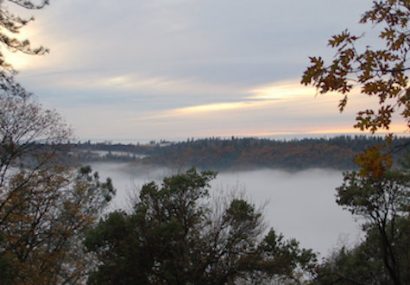Building upon its emergency regulations imposed during the recent and historic five-year drought, the California State Water Resources Control Board (SWRCB), now proposes to enact first-ever permanent regulations designed to conserve water and prohibit certain “wasteful” water practices.
Background
In 2014, California Governor Jerry Brown called upon Californians to voluntarily conserve water in response to severe drought conditions. When voluntary conservation failed to meet intended targets, as drought conditions worsened, Governor Brown issued further Executive Orders mandating, among other things, that the SWRCB adopt regulations to conserve water use. The SWRCB’s emergency regulations evolved in response to drought conditions and culminated with unprecedented mandatory, statewide restrictions against “wasteful” water practices, along with reporting requirements and enforcement penalties.
Governor Brown declared an end to California’s drought state of emergency in April 2017. In response, the SWRCB partially repealed the emergency conservation regulations, but kept retained certain requirements that continued until expiring in late November 2017.
Proposed Permanent Regulations
The SWRCB now proposes adopting, for the first time ever, permanent water waste regulations (Proposed Regulations). Under Title 23, Division 3 of the California Code of Regulations, the Proposed Regulations would add a new chapter, Chapter 3.5, and in that chapter would add Article 2, Wasteful and Unreasonable Water Use Practices.
The Proposed Regulations would prohibit all Californians from engaging in water practices defined as “wasteful” and “unreasonable”. The Proposed Regulations impose specific requirements on hotels and motels, and would penalize cities, counties, homeowners associations and other similar entities from certain actions that would undermine the Proposed Regulations’ conservation objectives.
Prohibited Water Uses Deemed Wasteful and Unreasonable
Citing California’s Constitutional prohibition against waste and the unreasonable use of water, the Proposed Regulations prohibit the following water practices:
- •Applying water to outdoor landscapes in a manner that causes runoff such that water flows onto adjacent property, non-irrigated areas, private and public walkways, roadways, parking lots, or structures.
- Using a hose that dispenses water to wash a motor vehicle, except where the hose is fitted with a shut-off nozzle or device attached to it that causes it to immediately cease dispensing water when not in use.
- Applying potable water directly to driveways and sidewalks.
- Using potable water in an ornamental fountain or other decorative water feature, except where part of a recirculating system.
- Applying water to irrigate turf and ornamental landscapes during and within 48 hours after measurable rainfall of at least one-tenth of one inch of rain.
- Serving drinking water other than upon request in eating or drinking establishments, including but not limited to restaurants, hotels, cafes, cafeterias, bars, or other public places where food or drink are served and/or purchased.
- Irrigating turf on public street medians or publicly owned or maintained landscaped areas between the street and sidewalk, except where the turf serves a community or neighborhood function.
Exceptions to the Proposed Permanent Regulations
Exceptions to these prohibitions extend:
- •To the extent necessary to address an immediate health and safety need, such as street sweeping and pressure washing public sidewalks or using potable water in a fountain or water feature that is required by law to be potable.
- To comply with a term or condition of a permit issued by a state of federal agency.
- Where water is used exclusively for commercial agricultural use as that term is defined.
Requirements for Hotels and Motels
Under the Proposed Regulations, operators of hotels and motels must provide guests with the option of choosing not to have towels and linens laundered daily, and must prominently display notice of this option in each guestroom using clear and easily understood language.
Penalties for Particular Entities
The Proposed Regulations impose fines up to $500 per day against cities and counties, homeowners’ associations and similar entities that, for example, prohibit low-water use landscaping or artificial turf, or that impose fines on residents who reduce their outdoor irrigation during drought emergencies, in violation of state law.
Anticipated Impacts
According to the SWRCB’s rulemaking documents, the Proposed Regulations “will safeguard urban water supplies, minimize the potential for waste and unreasonable use of water, and realize the directives of [Governor Brown’s] Executive Orders.” The SWRCB acknowledges, however, that the Proposed regulation would not, by themselves, necessarily achieve a significant level of water savings on a scale that other actions might achieve. The SWRCB estimates that the Proposed Regulations would likely result in annual statewide water savings of just 12,489 acre-feet, and that “because it would not also require water agencies to change rates in a manner to incentivize the mandated conservation practices, the analysis assumes the prohibitions themselves will not lead to significant savings.” The SWRCB posits, nonetheless, that the Proposed Regulations will have an overall positive impact by, for example:
- •Conserving energy associated with transporting, treating and delivering water supplies.
- Generating additional economic activity by incentivizing investments in drought-tolerant landscaping that also result in savings on customer water bills.
- Increasing water quality in receiving waters due to lower runoff volume.
- Increasing public awareness among water users.
- Reducing potential for severe economic disruption caused by future water shortages.
Criticism of the Proposed Permanent Regulations
As with most proposed new rules, criticism of the Proposed Regulations ranges from arguments asserting that they go too far, to arguments that they are not stringent enough. Some critics assert that relatively low anticipated water savings does not justify imposing statewide regulations, and would prefer taking a more localized approach. They argue that most water suppliers already impose water use restrictions similar to the Proposed Regulations, and that they need flexibility to meet local conditions and demands. Some critics also assert that the Proposed Regulations will result in a substantial loss of needed revenue.
Unless extended, the public comment period for the Proposed Regulations was scheduled to close on December 26th. Unless significant changes are made, the Proposed Regulations will likely take effect soon thereafter, in their current form.
Conclusion and Implications
The Proposed Regulations further implement Governor Brown’s California Water Action Plan and his mandate to Make Water Conservation a California Way of Life. The extent of water conserved as a result of the Proposed Regulations remains to be seen. Regardless, the enactment of permanent, mandatory statewide regulations that expressly label specific “wasteful” water practices, with penalties attached, most certainly sends a conservation message to Californians. (Derek Hoffman, Michael Duane Davis)




